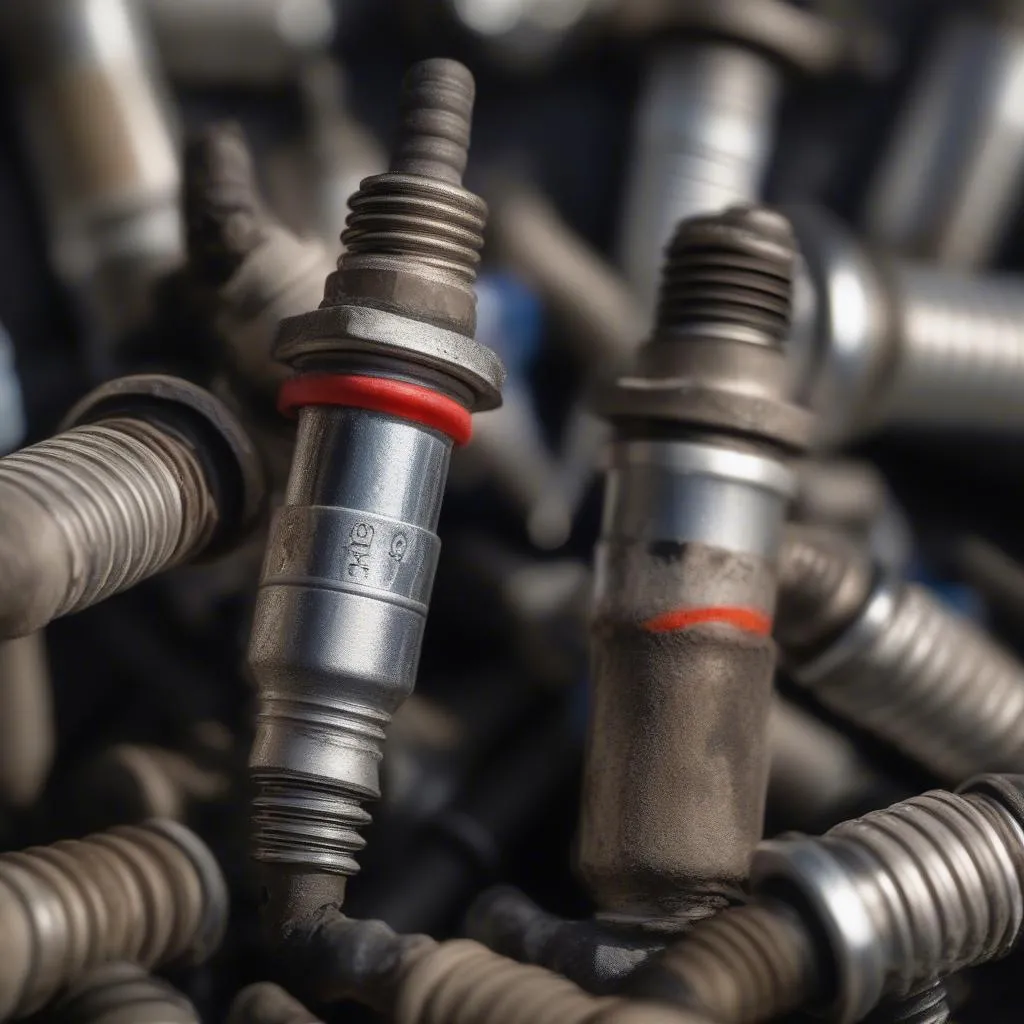“Bang! Bang! Bang!” Your engine sputters, the check engine light throws a fit on your dashboard, and your trusty mechanic utters the dreaded phrase, “Looks like a P0300 code.” Don’t panic! While a P0300 code, signaling random misfires in your engine, might sound like a death sentence for your beloved Ford Focus or BMW X3, it’s often more of a cryptic clue than a catastrophic event. Let’s decode this mystery, shall we?
What Does a “Random Misfire” Really Mean?
Before we jump into the nitty-gritty, imagine this: You’re trying to light a campfire, but the wood is damp. Instead of a roaring blaze, you get sputtering sparks and a whole lot of smoke. That’s essentially what’s happening inside your engine when it misfires.
A misfire happens when the air-fuel mixture in your engine cylinder fails to ignite properly, or ignites at the wrong time. When this happens randomly across multiple cylinders, you get a P0300 code. Think of it as your car’s way of saying, “Hey, something’s not right in the combustion chamber!”
Decoding P0300: The Usual Suspects
So, what causes this combustion chaos? Well, like a good detective novel, there’s a whole cast of potential culprits:
1. Spark Plug Issues: Worn-out spark plugs are the most common reason for P0300. Just like a dying flashlight bulb can’t produce a bright beam, a worn-out spark plug can’t provide the spark needed for proper ignition.
2. Fuel System Faults: Imagine trying to start a fire with water instead of lighter fluid. A clogged fuel filter, malfunctioning fuel injector, or weak fuel pump can all starve your engine of the fuel it needs to burn.
3. Air Intake Leaks: Remember that campfire analogy? Too much air can also be a bad thing. A vacuum leak in your intake manifold can disrupt the delicate air-fuel balance, leading to misfires.
4. Ignition System Gremlins: Beyond spark plugs, problems with your ignition coils, distributor cap, or rotor (depending on your car’s age) can also disrupt the spark party in your engine.
5. Other Potential Culprits: While less common, issues with your engine’s sensors (oxygen sensor, mass airflow sensor, etc.), a faulty catalytic converter, or even internal engine problems can also trigger a P0300 code.
 Worn spark plugs
Worn spark plugs
Navigating the P0300 Maze: What to Do?
Experiencing a P0300 code can be frustrating, but don’t despair! Here’s a roadmap to help you navigate this engine hiccup:
1. Don’t Panic, But Don’t Ignore It: While a P0300 doesn’t always signify a catastrophic failure, ignoring it can lead to more severe (and expensive) problems down the road.
2. Gather Information: Remember that trip to the mechanic we mentioned earlier? Now’s the time to make it happen. A professional mechanic, armed with a dealer-level scanner for your European car (like those sleek Audis or powerful Mercedes-Benzes), can pinpoint the root cause of the issue.
3. Be Prepared to Answer Questions: Your mechanic will likely ask about recent repairs, any noticeable symptoms (rough idling, loss of power, etc.), and your car’s regular maintenance schedule. Be as specific as possible; it helps them solve the puzzle faster.
4. Discuss Repair Options and Costs: Once the culprit is identified, discuss repair options and costs with your mechanic. They can advise you on the best course of action based on your car’s make, model, and mileage.
Don’t Get Lost in the Engine Bay: Ask the Right Questions
When dealing with a P0300 code, knowledge is power. Here are some questions to ask your mechanic:
- “Beyond the P0300, are there any other codes stored?”: Sometimes, additional codes can provide valuable clues about the underlying cause of the misfires.
- “What tests will you perform to diagnose the problem?”: Understanding the diagnostic process helps you feel more confident in the proposed repairs.
- “Can you show me the faulty components and explain how they caused the misfires?”: A visual explanation can go a long way in understanding the issue and the need for repairs.
 Mechanic inspecting engine bay
Mechanic inspecting engine bay
Similar Engine Mysteries: Beyond the P0300
While the P0300 code points to random misfires, you might encounter other codes indicating specific cylinders experiencing issues, such as P0301 (Cylinder 1 Misfire), P0302 (Cylinder 2 Misfire), and so on. These codes provide even more specific clues about the location of the problem.
Keep Your Engine Humming: Regular Maintenance is Key
Just like regular check-ups keep you healthy, routine maintenance is crucial for your car’s well-being. Follow your manufacturer’s recommended maintenance schedule, including:
- Regular Spark Plug Replacements: Think of it as changing the batteries in your smoke detector – it’s a small investment that can prevent major headaches.
- Fuel System Cleaning: Just like you wouldn’t want to drink from a dirty glass, your engine needs clean fuel to perform at its best.
- Air Filter Replacements: A clean air filter ensures your engine gets the oxygen it needs for efficient combustion.
By staying on top of these maintenance tasks, you can prevent many common causes of engine misfires and keep your car running smoothly for miles to come.
Need help with your car’s diagnostics? Contact us on Whatsapp at +84767531508. We have expert auto repair specialists available 24/7 to assist you!